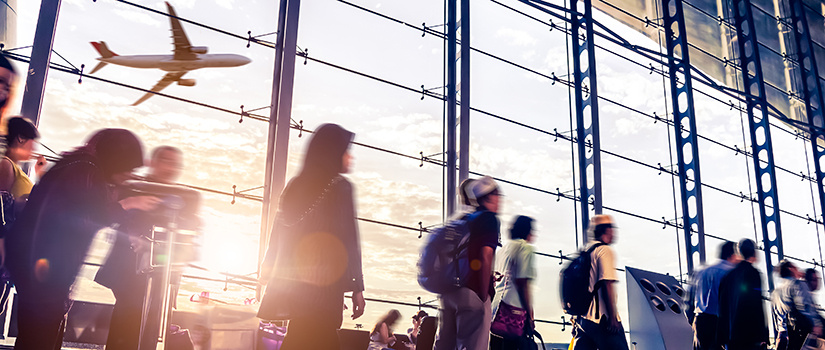
TCMI Domestic Travel Anxiety Index Data
| Year | Month | Index Score | Month / Month Difference | Month / Baseline Difference | Download Report | Keywords (hidden column) |
|---|---|---|---|---|---|---|
| 2023 | January | 69.1 | -5.0% | -30.9% | January 2023 Report | |
| 2023 | February | 72.5 | 5.0% | -27.5% | February 2023 Report | |
| 2022 | July | 87.0 | N/A | -13.0% | ||
| 2022 | August | 81.2 | 7.1% | -18.8% | ||
| 2022 | September | 90.0 | 10.8% | -10.0% | September 2022 Report | |
| 2022 | October | 79.7 | -11.4% | -20.3% | October 2022 Report | |
| 2022 | November | 72.7 | -8.8% | -27.3% | November 2022 Report |
About the Research
The Domestic Travel Anxiety Index measures American leisure travelers’ anxiety associated with domestic travel. The data is drawn from an online panel of U.S. residents who have traveled recently or are considering traveling within the next six months. The panelists represent U.S. leisure travelers. The purpose of the index is to monitor fluctuations in traveler anxiety over time.
The index is a monthly report provided by researchers at the Richardson Family Smart State Center for Economic Excellence in Tourism and Economic Development (SmartState Tourism) at the University of South Carolina. It is part of the center’s Tourism Crisis Management Initiative (TCMI). This is a relaunch of the index, which was measured during the COVID-19 pandemic in 2020.
Three values are reported: the monthly index score, the month / month difference, and the month / base difference. The month / month difference is the change of the given month’s score to the previous month’s score shown as a percentage. The month / base difference is the change from the given month to the baseline reference point of Jan. 23, 2020—before the pandemic arrived in the United States.
Five waves from the COVID-19 pandemic are included as reference points for the relaunched index. The waves were based on the CDC’s defined phases of the pandemic: Early Phase (Feb. 1 - April 30, 2020); Mid-Phase (May 1 - July 1, 2020); Late-Mid Phase (July 1 - Aug. 31, 2020); Late Phase (Sept. 1 - Dec. 1, 2020).
Methodology
Each wave has a range of 500-1,000 completed surveys, which are collected via an online panel of U.S. leisure travelers. TCMI's Domestic Travel Anxiety Index© is calculated by computing the relative score (the percent of negative replies divided by the total of the three categories of replies) for each of the three index questions (see Q1 below).
The survey scales range from 1-5. The scales are recoded as follows: 1=1, 2=2, 3=2, 4=3, and 5=3. These are labeled 1=negative, 2=neutral, 3=positive. Each relative score is rounded to the first decimal place. The three scores are summed together and divided by the baseline score and multiplied by 100. The baseline score is from Jan. 23, 2020.
Q1. Please indicate how you feel when you think about leisure travel in the U.S. right
now.
(includes leisure travel using personal/rented vehicle)
Anxious <——> Relaxed
Fearful <——> Fearless
Worried <——> Assured
Contacts


